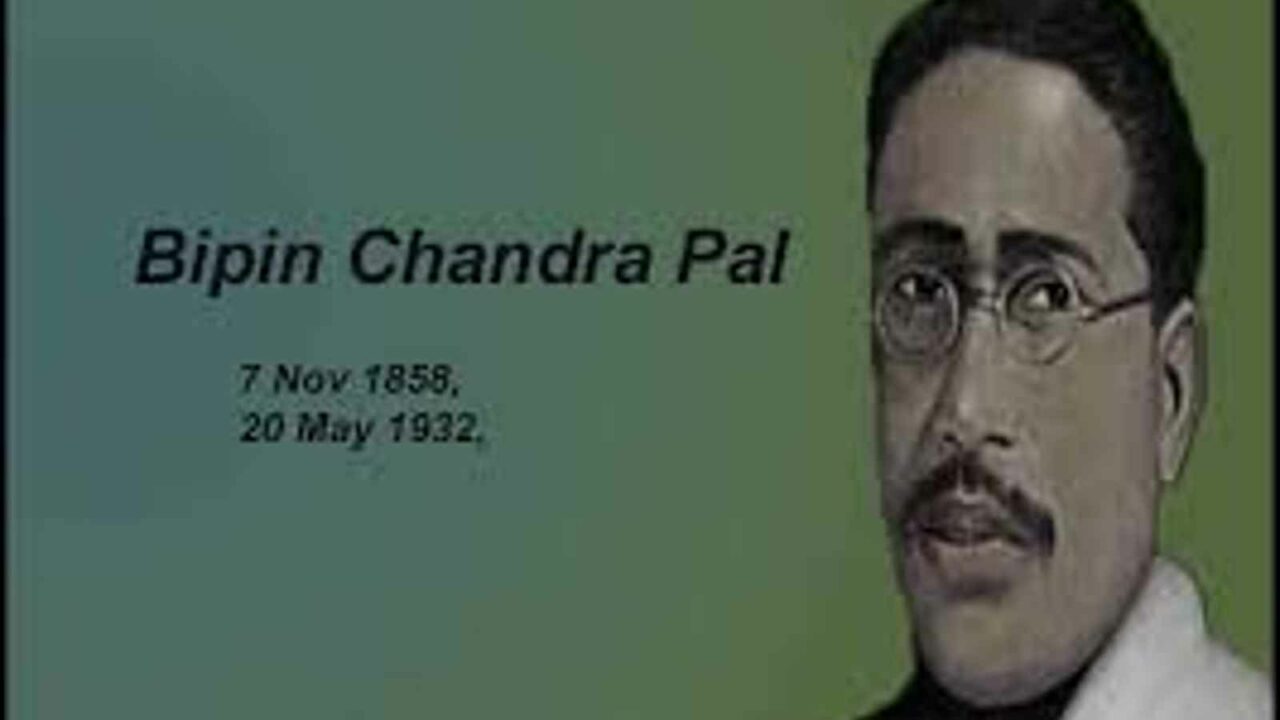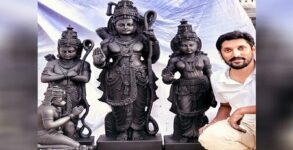Bipin Chandra Pal 91st Death Anniversary: Bipin Chandra Pal was born on November 7, 1858, in the village of Poil, Syllhet district, Bangladesh.
Born into a prosperous Hindu Vaishnavite family. Ramchandra Pal, his father, was a Persian scholar and a modest landowner.
Bipin Chandra Pal is known as the ‘Father of Revolutionary Thoughts’ in India. Additionally, he was a prominent radical of his period.
Due to his marriage to a widow, he severed all ties with his family.
He encountered many political leaders, including Shivnath Shastri, S.N. Banerjee, and B.K. Goswami, during his later years as a librarian at the Calcutta public library.
Contributions to the Humanities
In 1898, he also travelled to England to investigate comparative ideology. One year later, he returned to India and began espousing the concept of Swaraj to the indigenous Indians. He also penned a number of articles and essays to promote social consciousness and nationalism among the populace.
Bipin Chandra Pal utilised his profession as a journalist to promote patriotic consciousness. To disseminate Swaraj, he published a number of journals, periodicals, and books. His notable works include ‘Nationality and Empire’, ‘Indian nationalism’, ‘Swaraj and the Present Situation’, ‘The Soul of India’, ‘The Basis of Social Reform’, ‘The Hinduism’, and ‘The New Spirit’.
He was also the editor of the ‘Democrat’, the ‘Independent’, and numerous other publications. He also founded periodicals such as ‘Paridarsak’, ‘New India’, ‘Bande Mataram’, and ‘Swaraj’.
Bipin Chandra Pal also served on the editorial staff of the Bengal Public Opinion in Calcutta, as the editor of the Tribune from Lahore from 1887 to 1888, as the founding editor of the English weekly ‘India’ in 1901, and as the founding editor of the English daily ‘Bande Mataram’ in 1906, which the government later banned.
Additionally, he contributed frequently to the Modern Review, the Amrita Bazaar Patrika, and the Statesman. Shri Aurobindo dubbed him the “greatest prophet of nationalism.”
Bipin Chandra Pal’s Contribution to the Indian Independence Movement
Bipin Chandra Pal was renowned as a member of the triad of militant patriots known as ‘Lal-Bal-Pal’. In 1905, these three were responsible for initiating the first popular uprising against British colonial policy in Bengal.
He also founded the journal ‘Bande Mataram’. In 1907, during the detention of Bal Gangadhar Tilak and government repression. He departed for England, where he briefly affiliated himself with the radical India House and founded the Swaraj journal.
Jamsetji Tata 119th Death Anniversary: Facts about the Father of Indian Industry
In 1909, however, the political repercussions of the assassination of Curzon Wyllie led to the demise of the publication, which in turn drove Pal to penury and mental breakdown in London.
He was among the first to criticise Mahatma Gandhi or the “Gandhi cult” as it attempted to replace the current government with either no government or the Mahatma’s priestly autocracy.
Various participations
Bipin Chandra Pal’s history is the history of pre-independent India, when the young of the time fought against British rule.
Lala Lajpat Rai, along with Lokmanya Tilak, advocated the Swadeshi movement, which involved the boycott of all imported commodities and the use of Indian-made products.
To convey their message to the British, the group Lal-Bal-Pal advocated the use of extreme tactics such as the burning of Western clothing produced in the mills of Manchester or Swadeshi, the boycotting of British manufactured goods, and strikes and lockouts of British-owned businesses and industries.
He was sentenced to six months in prison for refusing to testify against Sri Aurobindo in the Vande Mataram case.
Bipin Chandra Pal participated in numerous events, including the 1904 Bombay session of the Indian National Congress, the 1905 Partition of Bengal, the 1923 Bengal Pact, the Swadeshi Movement, and the Non Cooperation Movement. In 1886, he joined the Indian National Congress.
In 1887, he argued vehemently for the repeal of the Arms Act due to its discriminatory nature. He was also instrumental in eliminating social ills from the nation and fostering a sense of nationalism through national criticism.
The passing of Bipin Chandra Pal
During his final years, Bipin Chandra Pal isolated himself from the Congress and lived a solitary existence. He passed away on May 20, 1932.
Even after his death, Bipin Chandra Pal’s biography will continue to inspire the nation’s youth and remind them of the tremendous sacrifices he made for the country.


















